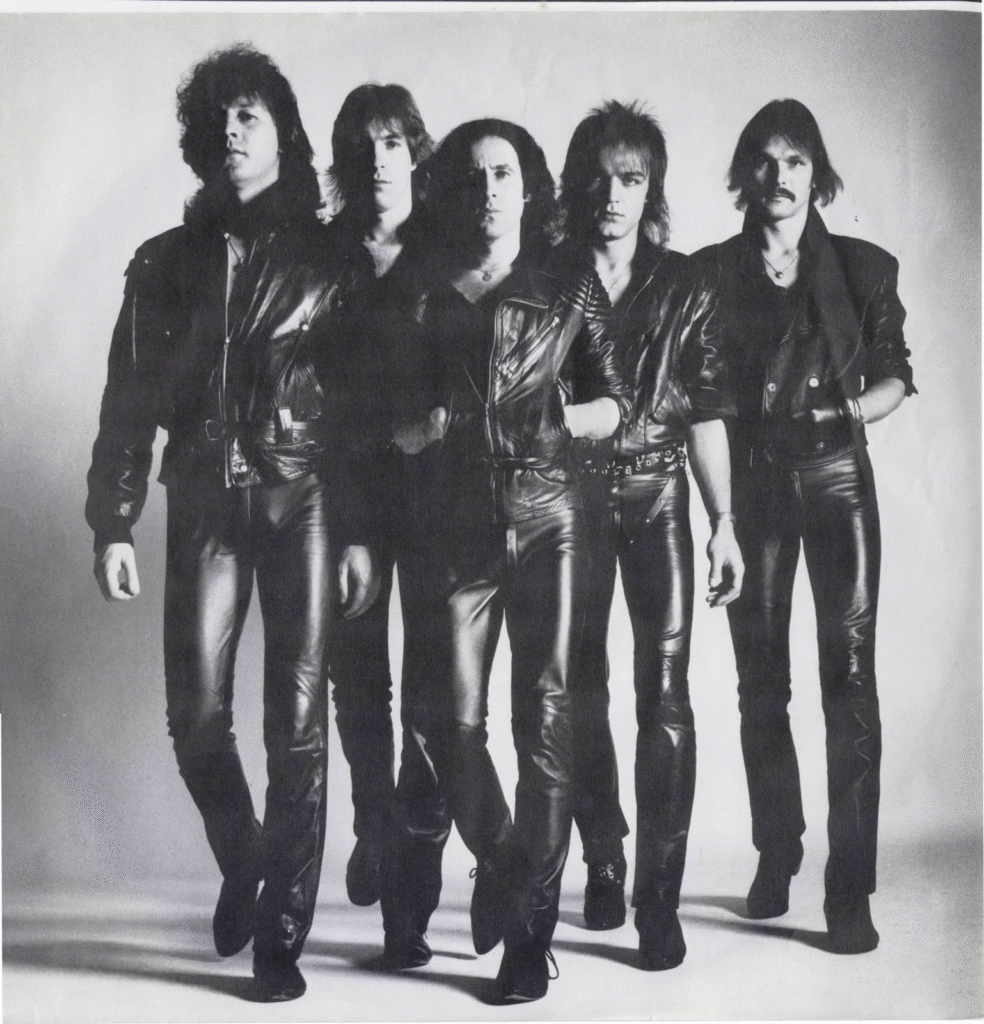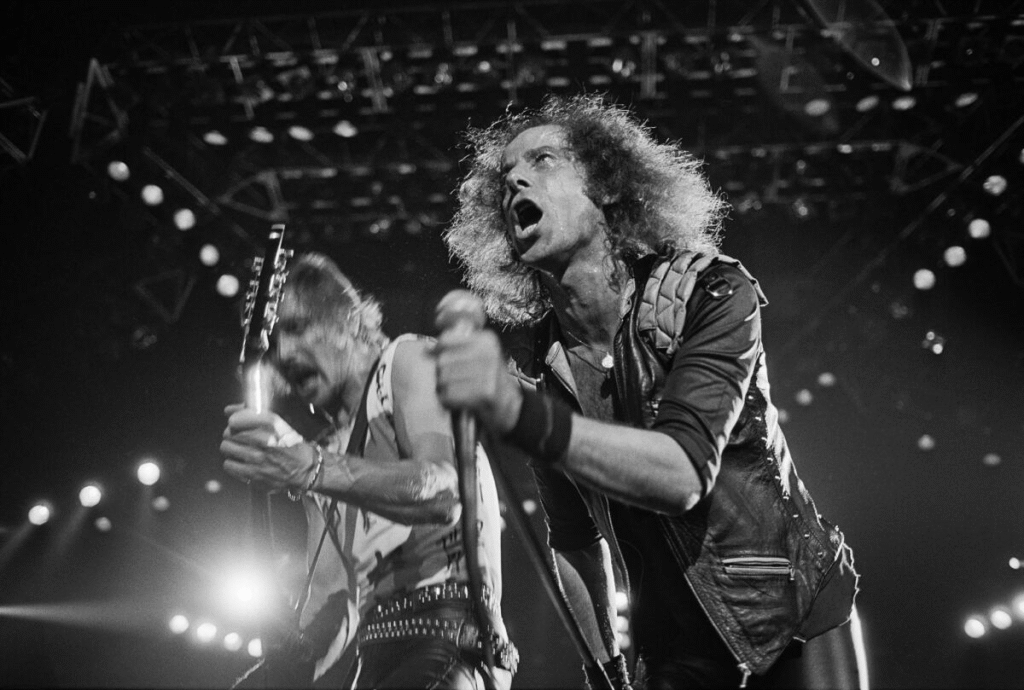In March 1984, Scorpions released Love at First Sting, a record that became a defining chapter in hard rock history. With an electrifying mix of power and melody, the German band reached new heights in songwriting and global success.
Recorded in Cologne and Los Angeles, and produced by Dieter Dierks, the album captured the perfect blend of heavy riffs, emotional ballads, and radio-ready hooks. Klaus Meine’s piercing vocals and the guitar work of Rudolf Schenker and Matthias Jabs drove songs like “Rock You Like a Hurricane” and “Big City Nights” into rock immortality.
Production was handled by Dieter Dierks, who had previously worked with the band on previous albums. Dierks was able to refine Scorpions' sound without diminishing its power or identity. The result was a straightforward album, packed with hooks and memorable melodies, designed for both stadiums and radio.

The album's most iconic single was "Rock You Like a Hurricane," an explosion of incendiary riffs and sexualized attitude that became the band's anthem. Klaus Meine declared that the song perfectly reflected Scorpions' duality: strength and desire, power and seduction.
Other tracks like “Big City Nights” and “Bad Boys Running Wild” cemented the album’s nocturnal, urban, and hedonistic tone, while “Still Loving You” became one of rock’s most recognizable ballads, with an intense emotional charge that spoke of love, regret, and lost passion.
"Love at First Sting" also generated controversy for its original cover, which depicted a semi-naked couple in a highly erotic black-and-white scene. The image was censored in some countries and replaced with a less provocative version. However, the controversy only increased interest in the album.
The commercial success was immediate: the album reached the top 10 in the United States and sold millions of copies worldwide. Scorpions embarked on a monumental tour that consolidated their status as one of the biggest bands in international hard rock. Their sold-out stadium shows reflected the global reach they had achieved.

Guitarist Rudolf Schenker has said in multiple interviews that Love at First Sting was the culmination of years of musical exploration. For Klaus Meine, the album represented "the sound of a band that knew exactly who they were and what they wanted to say."
Unlike other releases of its era, Scorpions' album avoided over-production or empty visual artifice. Their approach was straightforward: powerful music, passionate lyrics, and a provocative image, yet with a distinct identity.
Today, Love at First Sting remains a hard rock classic. Its influence is felt in later generations of bands who sought that balance between power and melody, between the roar of the guitar and the whisper of desire. It's a testament to a band that, at its peak, conquered the world with a surefire bite of love and rock and roll.








